
Women who have bought vegetables walk past their neighbor dealing with a sheep in Kashgar, northwest China's Xinjiang Uygur Autonomous Region, Sept. 23, 2015. Local Muslims prepared for the upcoming Corban Festival holiday, also known as Eid al-Adha or the feast of the sacrifice, in various ways. This year the Corban Festival falls on Sept. 24. (Xinhua/Jiang Wenyao)
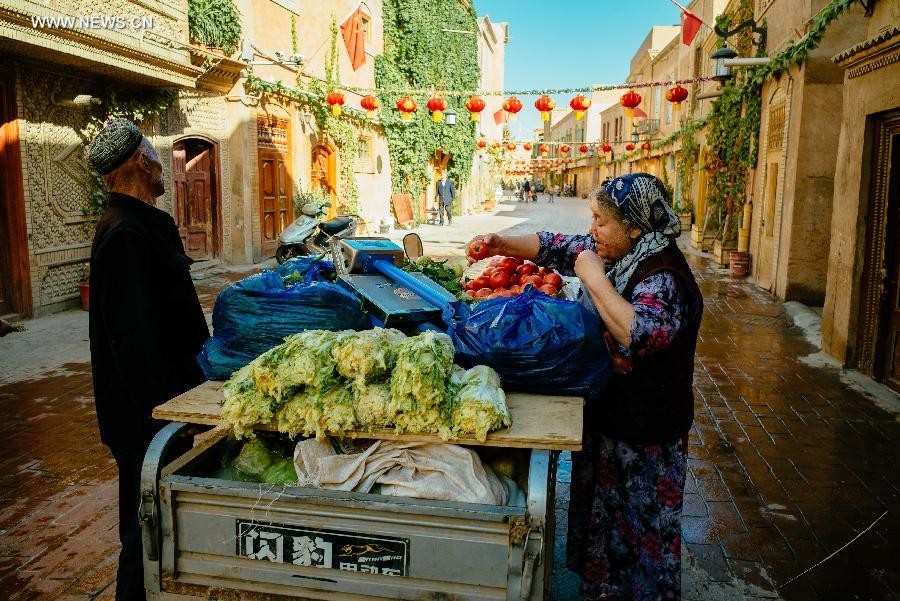
A woman selects vegetables in Kashgar, northwest China's Xinjiang Uygur Autonomous Region, Sept. 23, 2015. Local Muslims prepared for the upcoming Corban Festival holiday, also known as Eid al-Adha or the feast of the sacrifice, in various ways. This year the Corban Festival falls on Sept. 24. (Xinhua/Zhang Cheng)

A woman selects Sanzi, a kind of oil fried wheaten food, outside a mosque in Yinchuan, capital of northwest China's Ningxia Hui Autonomous Region, Sept. 23, 2015. Local Muslims prepared for the upcoming Corban Festival holiday, also known as Eid al-Adha or the feast of the sacrifice, in various ways. This year the Corban Festival falls on Sept. 24. (Xinhua/Peng Zhaozhi)
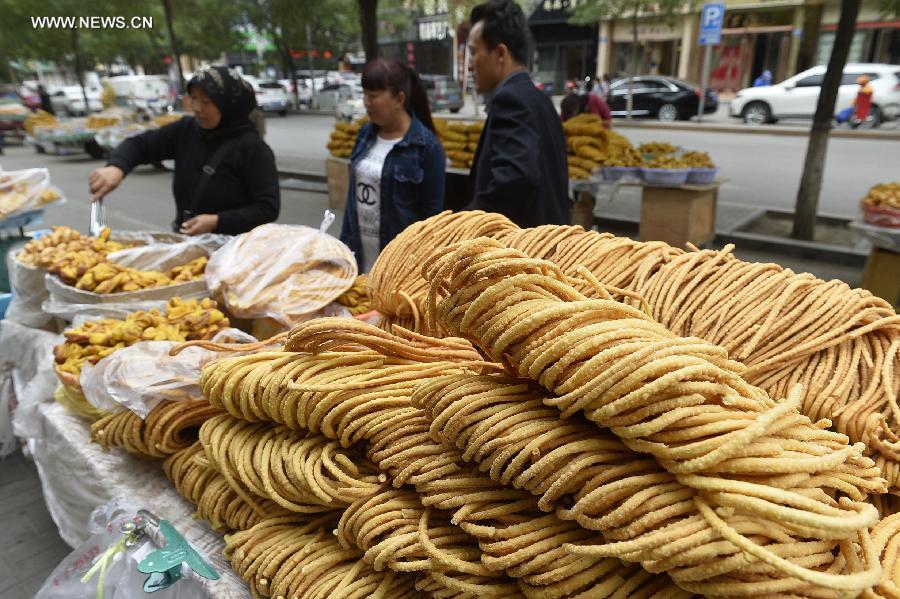
Local residents select Sanzi, a kind of oil fried wheaten food, outside a mosque in Yinchuan, capital of northwest China's Ningxia Hui Autonomous Region, Sept. 23, 2015. Local Muslims prepared for the upcoming Corban Festival holiday, also known as Eid al-Adha or the feast of the sacrifice, in various ways. This year the Corban Festival falls on Sept. 24. (Xinhua/Peng Zhaozhi)
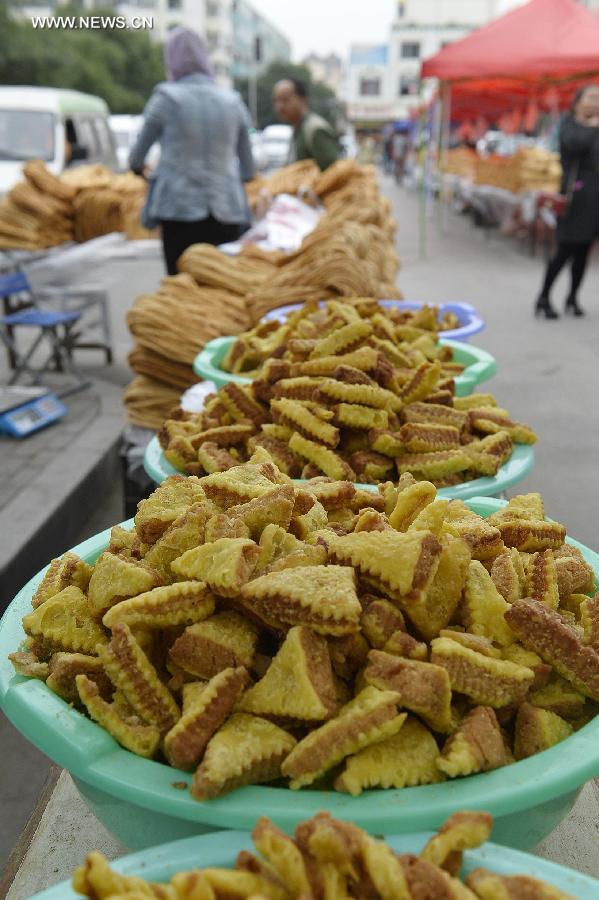
Local residents select Youxiang, a kind of oil fried wheaten food, outside a mosque in Yinchuan, capital of northwest China's Ningxia Hui Autonomous Region, Sept. 23, 2015. Local Muslims prepared for the upcoming Corban Festival holiday, also known as Eid al-Adha or the feast of the sacrifice, in various ways. This year the Corban Festival falls on Sept. 24. (Xinhua/Peng Zhaozhi)
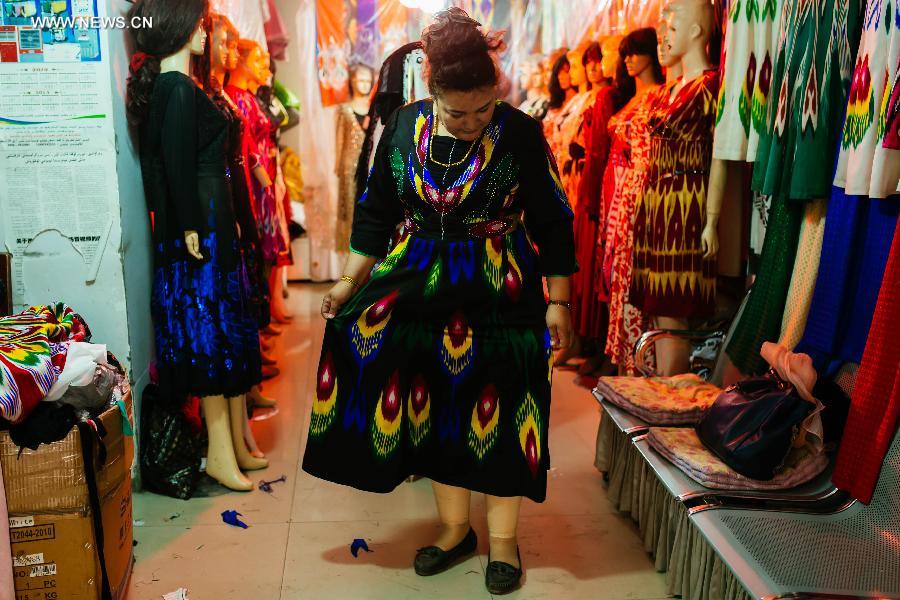
A woman tries on her new clothes at a shop in Kashgar, northwest China's Xinjiang Uygur Autonomous Region, Sept. 23, 2015. Local Muslims prepared for the upcoming Corban Festival holiday, also known as Eid al-Adha or the feast of the sacrifice, in various ways. Kashgar, the westernmost city in China, was the center of Uygur civilization for centuries, a place where people came together to trade and spread Islamic learning, on the caravan routes from Europe and Persia to China. (Xinhua/Zhang Cheng)
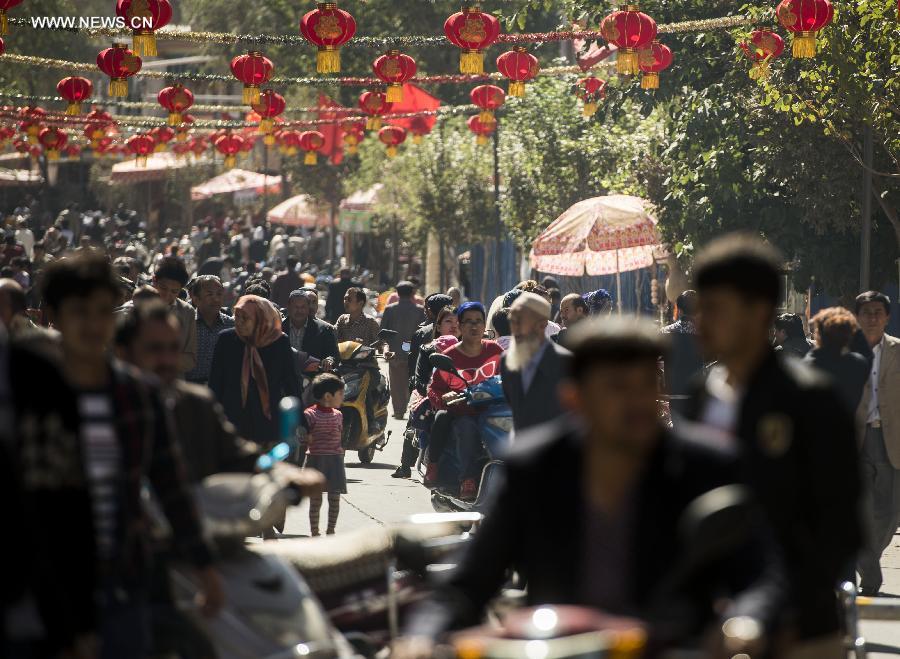
Local residents shop in a bazaar in Kashgar, northwest China's Xinjiang Uygur Autonomous Region, Sept. 23, 2015. Local Muslims prepared for the upcoming Corban Festival holiday, also known as Eid al-Adha or the feast of the sacrifice, in various ways. Kashgar, the westernmost city in China, was the center of Uygur civilization for centuries, a place where people came together to trade and spread Islamic learning, on the caravan routes from Europe and Persia to China. (Xinhua/Jiang Wenyao)
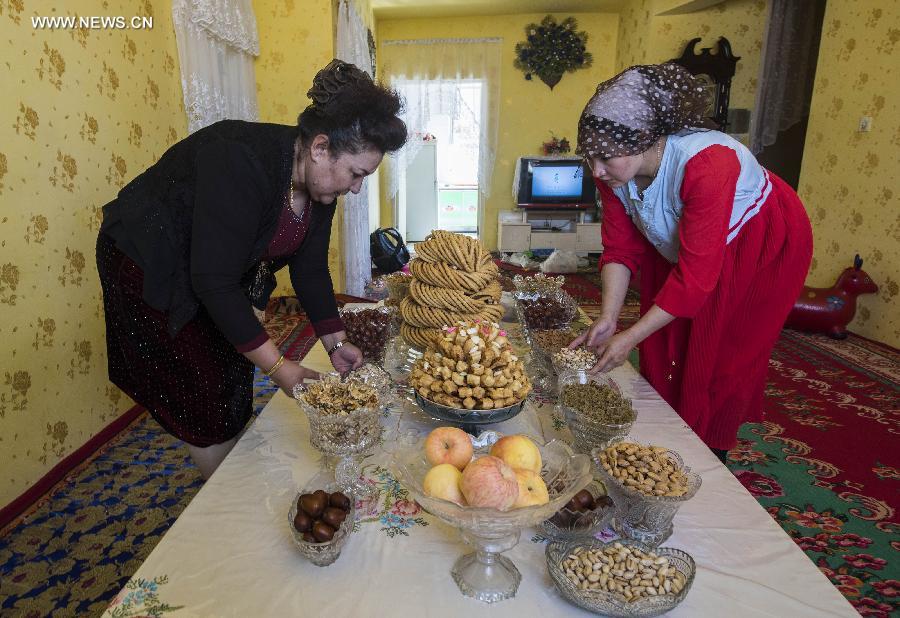
Local residents prepare food at home in Kashgar, northwest China's Xinjiang Uygur Autonomous Region, Sept. 23, 2015. Local Muslims prepared for the upcoming Corban Festival holiday, also known as Eid al-Adha or the feast of the sacrifice, in various ways. Kashgar, the westernmost city in China, was the center of Uygur civilization for centuries, a place where people came together to trade and spread Islamic learning, on the caravan routes from Europe and Persia to China. (Xinhua/Jiang Wenyao)